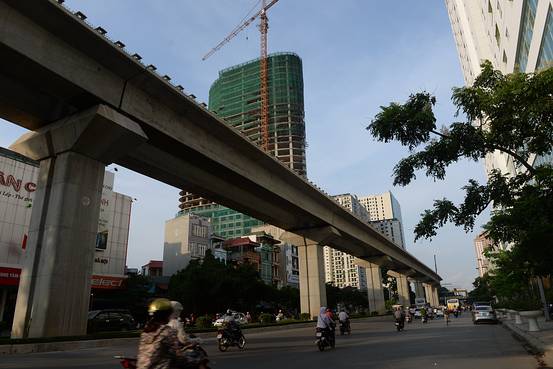March, 25, 2015

Like many Vietnamese, the economist Le Dang Doanhturns darkly suspicious when he speaks about Chinese money.
Trade and investment from Vietnam’s giant northern neighbour, says Mr. Doanh, a former top adviser to the Communist Party of Vietnam, often comes with hidden military agendas, economic subterfuge and ecological traps.
A case in point, he says, was a planned Chinese-backed tourist resort to be located at an approach to a strategic mountain pass along the coast-a potential gateway to the country for invaders. Local authorities cancelled that project last year because of national security concerns. He also complains that Chinese traders are denuding Vietnam of its rare Star Anise trees by carrying off their roots along with their aromatic flowers used in medicine. China, he concludes, “is really an imperialist country.”
This is why Mr. Doanh believes that a new Chinese-led multilateral development bank is such a clever idea, because it will soothe anxieties as China deploys its vast wealth around the world. Beijing has promised to throw in an initial $50 billion.
And Mr. Doanh praises Western powers for breaking ranks with Washington and joining in to raise the bank’s standards. The Wall Street Journal reported that China helped get the U.K., France, Germany and Italy on board by offering to forgo veto power over bank decisions.
“It’s a soft approach-very flexible, very intelligent,” Mr. Doanh says.
In opposing the Asian Infrastructure Investment Bank, the U.S. has not only set itself up for a diplomatic rift with its closest Western allies, it’s also dealt a blow to America’s image in developing countries like Vietnam.
Emerging economies are desperate for infrastructure, which China can deliver in abundance, but fear being sucked too deeply into Beijing’s orbit. Even vocal critics of China such as Mr. Doanh draw the conclusion that Beijing is trying to balance these concerns with the new bank, while America is stuck in old ways of thinking.
The U.S. Congress refuses to pass additional funding for the International Monetary Fund that is a necessary step toward giving China and other emerging economies more say in decision-making-one reason Beijing has managed to gather such strong support for the infrastructure bank. More broadly, Washington’s objections support the Chinese narrative of an America trying to thwart China’s rise at every turn. On the one hand, the U.S. urges China to assume greater international responsibilities and burdens. President Barack Obama has criticized Beijing as a “free rider” on the international system. Yet when China steps up with an initiative like the development bank, Washington tries to slap it down.
All this reinforces China’s view that America takes a zero-sum approach to Beijing’s emergence as a global power. Xinhua News Agency called Washington’s resistance “petulant and cynical.”
Details of bank governance have yet to be worked out. But Washington is concerned that the lender will act as a tool of Chinese foreign policy, albeit in a more sophisticated way. And it is sceptical about the bank’s commitment to environmental and social standards.
Such worries are well grounded. Countries from Southeast Asia to Africa and Latin America are littered with environmentally damaging engineering projects supported by billions of dollars of Chinese money filtered through local elites. These sometimes saddle recipient countries with unsupportable debt, and crowd out worthier investments from the private sector.
Moreover, Chinese aid and investments are generally tied to the use of Chinese construction companies, technology, materials and workers.
But the crude use of economic tools by China to spread its global influence is backfiring. China is scrambling to salvage a massive $1.4 billion construction project it is funding in Sri Lanka as part of its strategic Maritime Silk Road initiative to revive ancient trade routes to Europe. Work on the Colombo Port City, inaugurated last year by China’s President Xi Jinping, was halted after a new government took over in Sri Lanka.
Inspectors are looking into allegations of corruption and other contract irregularities.
Nowhere are the failures of Chinese economic statecraft more apparent than in Myanmar, which unlike Vietnam once welcomed Chinese investments with open arms. Under rule by military generals, China became by far the largest investor in the country. But in 2011, a nominally civilian government suspended a $3.6 billion Chinese-funded hydroelectric project after a public outcry over environmental concerns. In doing so, it sent a strong message: Myanmar is not a Chinese satellite. The government is now reaching out to the West.
By aiming to develop and work through a multilateral institution, China appears to be taking a more nuanced approach toward economic engagement.
Beijing is putting its international reputation on the line. If it really does intend to use the bank as just another vehicle for national aggrandizement, or to offload its industrial surpluses, it will pay a heavy price. So far, however, Beijing is sending all the right signals. It increasingly looks to people like Mr. Doanh, the Vietnamese economist, as though America is fighting the wrong battle.
The Australian
Video Story